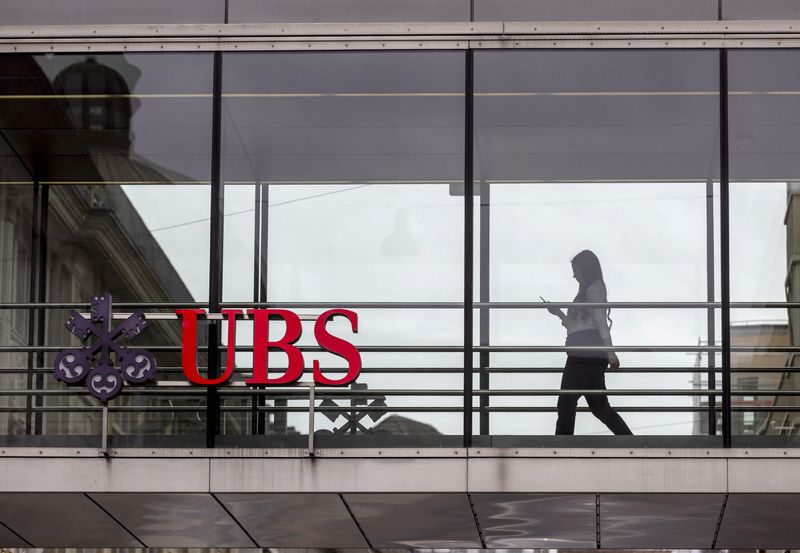UBS Asset Management cuts exposure to corporate bonds in global portfolios on growth risks
By Harry Robertson
LONDON (Reuters) - UBS Asset Management has been selling corporate bonds in its global portfolios during market rallies, a senior fund manager said, citing concerns that a slowing economy or the looming U.S. election could spark volatility and wipe out returns.
Corporate bonds have rallied over the last two years, and the ICE BofA U.S. corporate bond index is up 14%, with investors drawn to the higher yields on offer after central banks hiked rates and as economic growth held up.
That has driven yields on corporate bonds down relative to those on government debt, pushing so-called credit spreads - the extra returns investors get on company debt - to around their lowest since early 2022. Yields move inversely to prices.
Those tight spreads mean investors are not being paid enough for the risk of holding a historically volatile asset class, Jonathan Gregory, head of fixed income UK at UBS Asset Management, told Reuters on Wednesday.
"We're priced pretty close for perfection in credit markets from here, but plenty of things can knock you off track," he said.
"If risks around a U.S. recession grow, then credit spreads are going to underperform," Gregory said. He said a recession was not his base case scenario but also cited uncertainty about the U.S. election as another reason for caution.
"In our global portfolios, we're selling into credit strength across the board," said Gregory, who oversees around $30 billion of global funds at the $1.7 trillion asset manager. He said that applied to U.S. and European investment grade and high-yield debt.
"We're not saying you shouldn't own any credit, it's just that we should be wary," he said.
Corporate bond spreads - a closely watched gauge of market concerns about the health of companies - widened at the start of August as stocks tumbled on U.S. growth worries, but have since narrowed.
Last week was the fifth-busiest on record for U.S. investment grade corporate bond issuance, according to IFR, with $81 billion of sales, a sign of strong investor demand for the higher yields on corporate debt.
Gregory said he preferred to own shorter-dated government bonds.
"It's really government bond markets that provide you with that good income and the potential safety if things get a bit sticky elsewhere," he said.
Source: Investing.com
